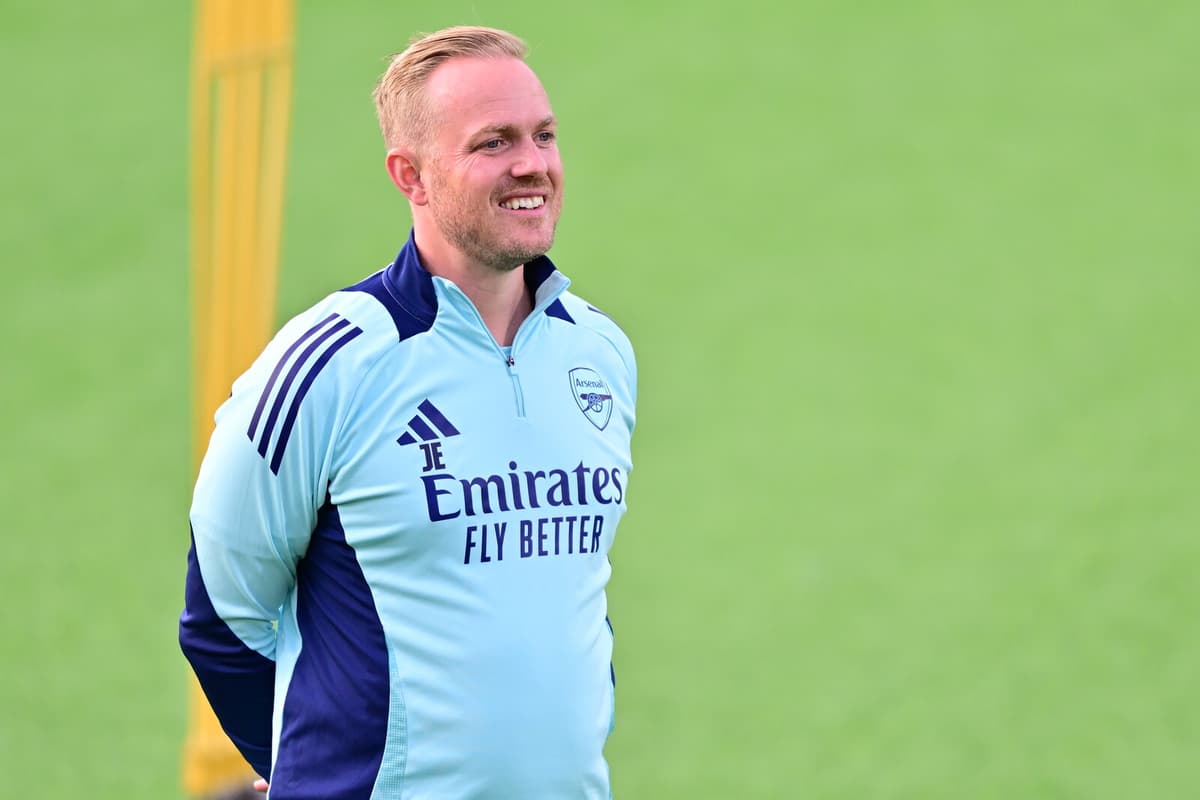The English football league has attracted more and more international stars in recent years, including a number of Swedish national team players.
This is evident not least in terms of attendance, where Arsenal dominated last year.
Thanks to three big matches at Emirates Stadium, the London club increased its home average to around 30,000 spectators.
After the season, Arsenal therefore announced that the women's team will play at least eleven matches at the large arena next season.
The development has been lightning-fast, notes Arsenal coach Jonas Eidevall.
My first season in Arsenal had an average attendance of around 1,500 at our home matches. The second year we had 17,000 and the third year 30,000, he says.
The next league season kicks off on Friday evening, with the match between Chelsea and Aston Villa. For Arsenal, a home match against Manchester City awaits on Sunday.
At Emirates.
We had an average of 52,000 spectators there last year. So we're aiming for at least that this year, says Jonas Eidevall.
"Starting to pull away"
Elsewhere, too, a lot is happening in English women's football.
The two top divisions broke away from the English Football Association at the end of the summer. Instead, the two leagues are now run by an independent company, WPLL (Women's Professional League Limited), in a similar way to when the men's Premier League was created in 1992.
What this means in the long run remains to be seen.
Häcken beat Arsenal 1-0 in the Champions League qualifying match on Wednesday evening. But in the long run, it may become even harder to compete with the biggest clubs, fears Häcken coach Mak Lind.
We want to keep up with the development in Europe. But they're starting to pull away now, both in terms of how they develop football and the players they bring in, he says.
"Economically hopeless"
When the season kicks off, there are 14 Swedish players and two Swedish coaches in the various Super League teams.
And then there's also ambitious London City – with three Swedish national team players – in the second division.
Economically, we're hopeless. But we have to try to find our way, says Mak Lind.
Jonas Eidevall, who left Damallsvenskan Rosengård in 2021, agrees.
It's still the case in football that you can do a lot with fewer resources too. That's the charm of the game, he says.
Arsenal (3rd last year): Stina Blackstenius, Amanda Ilestedt (has taken a break from football due to pregnancy), Lina Hurtig, Rosa Kafaji + head coach Jonas Eidevall.
Chelsea (1): Nathalie Björn, Zecira Musovic, Johanna Rytting Kaneryd.
Crystal Palace (newcomer): My Cato.
Leicester (10): Emilia Pelgander.
Liverpool (4): Cornelia Kapocs.
Manchester United (5): Anna Sandberg.
Tottenham (6): Amanda Nildén, Matilda Vinberg + head coach Robert Vilahamn.
West Ham (11): Marika Bergman-Lundin.
Other teams in the series: Aston Villa (7), Brighton & Hove Albion (9), Everton (8), Manchester City (2).
In the second-highest series, Women's Championship, there are three Swedes, all in London City: Kosovare Asllani, Sofia Jakobsson and Julia Roddar.






